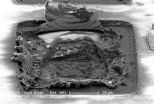(Press-News.org) In this News Digest:
Summary of a study being published online March 11, 2013, in the Journal of Clinical Oncology, analyzing self-reported data from 156 outpatient oncology practices participating in the American Society of Clinical Oncology's Quality Oncology Practice Initiative (QOPI®) showing significant improvements in performance on certain measures for quality oncology cancer care over a four-year period.
Overall, mean normalized performance scores from participating practices rose from 71 to 85 percent between 2006 and 2010; improvements were especially profound on measures related to adoption of new clinical practice standards.
Quote for attribution to Sandra M. Swain, MD, FACP, ASCO President.
An analysis of self-reported data from outpatient oncology practices that participated in the American Society of Clinical Oncology's Quality Oncology Practice Initiative (QOPI®) found a significant increase in performance on quality measures for oncology care over a four-year period, especially in adopting new clinical practices. The study was published on March 11, in the Journal of Clinical Oncology.
QOPI is a voluntary, national quality self-assessment and improvement program that allows outpatient oncology practices to compare the care they provide against guideline recommendations. Participation in QOPI has been growing steadily since the program's inception in 2006; more than 800 practices have registered to date.
Researchers analyzed data from 156 oncology practices, finding that the mean normalized performance score improved from 71 to 85 percent between 2006 and 2010. A further review of the data found the following trends:
Practices perform well on numerous quality measures: For example, participating practices reported consistently high rates (90 percent or higher) of providing postoperative (adjuvant) chemotherapy for breast, colorectal and non-small cell lung cancers, as recommended. Adjuvant therapy is proven to extend survival – and often offer cures – for many patients with these cancers.
Improved uptake of new clinical practices: Mean scores of measures related to new clinical practices (based on new guidelines or clinical evidence) improved from 5 to 69 percent overall over four years. These new clinical practices include genetic testing for tumor molecular markers that predict response to treatment in patients with metastatic colorectal cancer (KRAS gene alterations before administering anti-EGFR therapy), adequate lymph node examination after surgery in colorectal cancer, testing for, and use of the anti-nausea drug aprepitant when certain chemotherapy regimens are administered.
There are opportunities for improvement for certain measures: Measures that assess smoking cessation and fertility preservation counseling (for patients undergoing treatment that could render them infertile) did not improve over time. Performance on these measures ranged from a high of 34 percent for smoking cessation counseling to a low of 6 percent for discussion of fertility preservation.
"These findings demonstrate that oncologists are consistently performing at high levels in many core areas of care and are quickly incorporating new standard tests and treatments into everyday practice," said lead author Michael N. Neuss, MD, chief medical officer at the Vanderbilt-Ingram Cancer Center and Chair of the QOPI Steering Group. "These data also show that participation in quality measurement programs, like QOPI, is correlated with substantial improvement in adherence to clinical practice standards."
QOPI holds its two semi-annual collection rounds in the spring and fall. The current analysis included 156 practices that participated in at least two collection rounds and reported data from 30 or more patient charts per round. Performance scores (rates of adherence to quality measures) were calculated for seven categories of quality measures (also known as QOPI modules; includes: core measures, symptom/toxicity management, care at end of life, non-Hodgkin's lymphoma, breast cancer, colorectal cancer, and non-small cell lung cancer), which collectively include more than 150 measures.
ASCO Perspective
Sandra M. Swain, MD, FACP, ASCO President
"This study further shows that participation in quality assessment programs like QOPI should provide reassurance to people living with cancer that they are receiving high quality care. Nearly 600 practices in the U.S. are already participating in QOPI in part because it provides a systematic process, library of diverse quality measures, collection tool, and reliable information to assess the care they provide. QOPI is also the gateway to QOPI-Certification which recognizes practices that demonstrate performance on designated QOPI measures and meet certification standards for quality and safe care."
###
For more information about QOPI, please visit qopi.asco.org.
Please contact Aaron Tallent at 571-483-1371 or aaron.tallent@asco.org for copies of the study.
The Journal of Clinical Oncology is the tri-monthly peer-reviewed journal of the American Society of Clinical Oncology (ASCO), the world's leading professional society representing physicians who treat people with cancer.
ATTRIBUTION TO THE JOURNAL OF CLINICAL ONCOLOGY IS REQUESTED IN ALL NEWS COVERAGE.
About ASCO
The American Society of Clinical Oncology (ASCO) is the world's leading professional organization representing physicians who care for people with cancer. With more than 30,000 members, ASCO is committed to improving cancer care through scientific meetings, educational programs and peer-reviewed journals. ASCO is supported by its affiliate organization, the Conquer Cancer Foundation, which funds ground-breaking research and programs that make a tangible difference in the lives of people with cancer. For ASCO information and resources, visit http://www.asco.org. Patient-oriented cancer information is available at http://www.cancer.net.
Analysis of ASCO's QOPI® data finds significant improvement in performance on metrics for quality oncology care
2013-03-12
ELSE PRESS RELEASES FROM THIS DATE:
Monsoon failure key to long droughts in Southwest
2013-03-12
Long-term droughts in the Southwestern North America often mean failure of both summer and winter rains, according to new tree-ring research from a University of Arizona-led team.
The finding contradicts the commonly held belief that a dry winter rainy season is generally followed by a wet monsoon season, and vice versa.
The new research shows that for the severe, multi-decadal droughts that occurred from 1539 to 2008, generally both winter and summer rains were sparse year after year.
"One of the big questions in drought studies is what prompts droughts to go ...
Lunar impacts created seas of molten rock, research shows
2013-03-12
PROVIDENCE, R.I. [Brown University] — Early in the Moon's history an ocean of molten rock covered its entire surface. As that lunar magma ocean cooled over millions of years, it differentiated to form the Moon's crust and mantle. But according to a new analysis by planetary scientists from Brown University, this wasn't the last time the Moon's surface was melted on a massive scale.
The research, led by graduate student William Vaughan, shows that the impact event that formed the Orientale basin on the Moon's western edge and far side produced a sea of melted rock 220 ...
Remote clouds responsible for climate models' glitch in tropical rainfall
2013-03-12
It seems counterintuitive that clouds over the Southern Ocean, which circles Antarctica, would cause rain in Zambia or the tropical island of Java. But new research finds that one of the most persistent biases in global climate models – a phantom band of rainfall just south of the equator that does not occur in reality – is caused by poor simulation of the cloud cover thousands of miles farther to the south.
University of Washington atmospheric scientists hope their results help explain why global climate models mistakenly duplicate the inter-tropical convergence zone, ...
Long-suspected cause of blindness from eye disease disproved
2013-03-12
(SALT LAKE CITY)—Vision scientists long have thought that lack of very long chain fatty acids in photoreceptor cells caused blindness in children with Stargardt type 3 retinal degeneration, an incurable eye disease. But researchers at the University of Utah's John A. Moran Eye Center have shown in a new study that lack of these fatty acids does not cause blindness, meaning that the search for the mechanism that robs sight from children with the disease must start anew.
Researchers led by David Krizaj, Ph.D., associate professor of ophthalmology and visual sciences at ...
Common erectile dysfunction drug not helpful for heart failure patients, study finds
2013-03-12
SAN FRANCISCO -- A commonly used erectile dysfunction drug, sildenafil, doesn't help patients who have heart failure with preserved ejection fraction, a condition in which the heart's lower chambers are stiff and cannot relax and fill fully between beats. That is the finding of the RELAX study, presented today at the American College of Cardiology's 62nd Annual Scientific Session and simultaneously published in The Journal of the American Medical Association. The study's lead author called the results disappointing.
Sildenafil, a phosphodiesterase-5 inhibitor, had shown ...
Astronomers conduct first remote reconnaissance of another solar system
2013-03-12
Researchers have conducted a remote reconnaissance of a distant solar system with a new telescope imaging system that sifts through the blinding light of stars. Using a suite of high-tech instrumentation and software called Project 1640, the scientists collected the first chemical fingerprints, or spectra, of this system's four red exoplanets, which orbit a star 128 light years away from Earth. A detailed description of the planets—showing how drastically different they are from the known worlds in the universe—was accepted Friday for publication in The Astrophysical Journal. ...
Creating indestructible self-healing circuits
2013-03-12
PASADENA, Calif.—Imagine that the chips in your smart phone or computer could repair and defend themselves on the fly, recovering in microseconds from problems ranging from less-than-ideal battery power to total transistor failure. It might sound like the stuff of science fiction, but a team of engineers at the California Institute of Technology (Caltech), for the first time ever, has developed just such self-healing integrated chips.
The team, made up of members of the High-Speed Integrated Circuits laboratory in Caltech's Division of Engineering and Applied Science, ...
Epigenetics mechanism may help explain effects of mom's nutrition on her children's health
2013-03-12
This press release is available in Spanish.
Pioneering studies by U. S. Department of Agriculture-funded research molecular geneticist Robert A. Waterland are helping explain how the foods that soon-to-be-moms eat in the days and weeks around the time of conception—or what's known as periconceptional nutrition–may affect the way genes function in her children, and her children's health.
In an early study, Waterland and co-investigators examined gene function of 50 healthy children living in rural villages in the West African nation of The Gambia. The study has shaped ...
Study shows how one insect got its wings
2013-03-12
COLUMBUS, Ohio – Scientists have delved deeper into the evolutionary history of the fruit fly than ever before to reveal the genetic activity that led to the development of wings – a key to the insect's ability to survive.
The wings themselves are common research models for this and other species' appendages. But until now, scientists did not know how the fruit fly, Drosophila melanogaster, first sprouted tiny buds that became flat wings.
A cluster of only 20 or so cells present in the fruit fly's first day of larval life was analyzed to connect a gene known to be active ...
Study predicts lag in summer rains over parts of US and Mexico
2013-03-12
A delay in the summer monsoon rains that fall over the southwestern United States and northwestern Mexico is expected in the coming decades according to a new study in the Journal of Geophysical Research. The North American monsoon delivers as much as 70 percent of the region's annual rainfall, watering crops and rangelands for an estimated 20 million people.
"We hope this information can be used with other studies to build realistic expectations for water resource availability in the future," said study lead author, Benjamin Cook, a climate scientist with joint appointments ...




